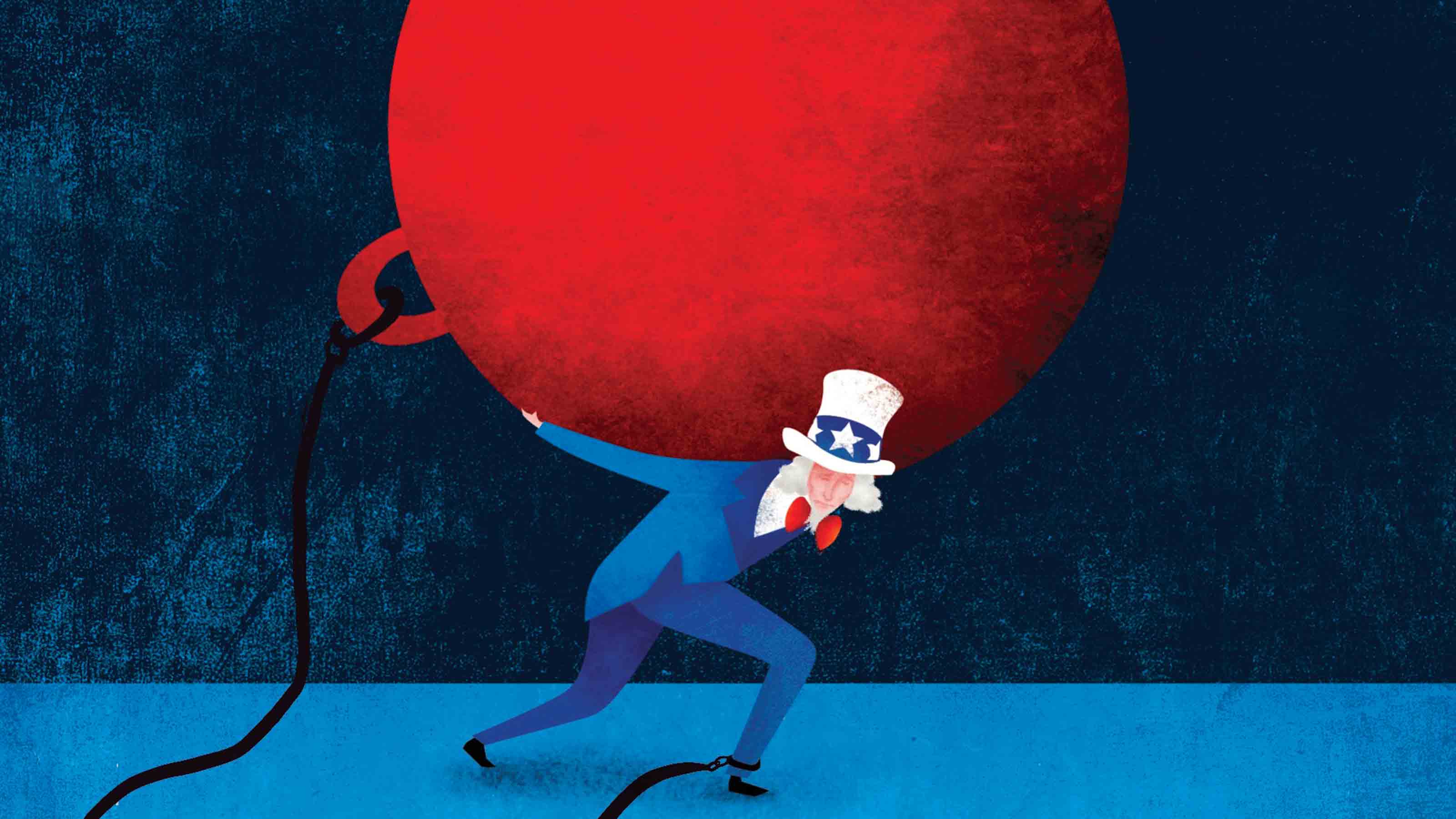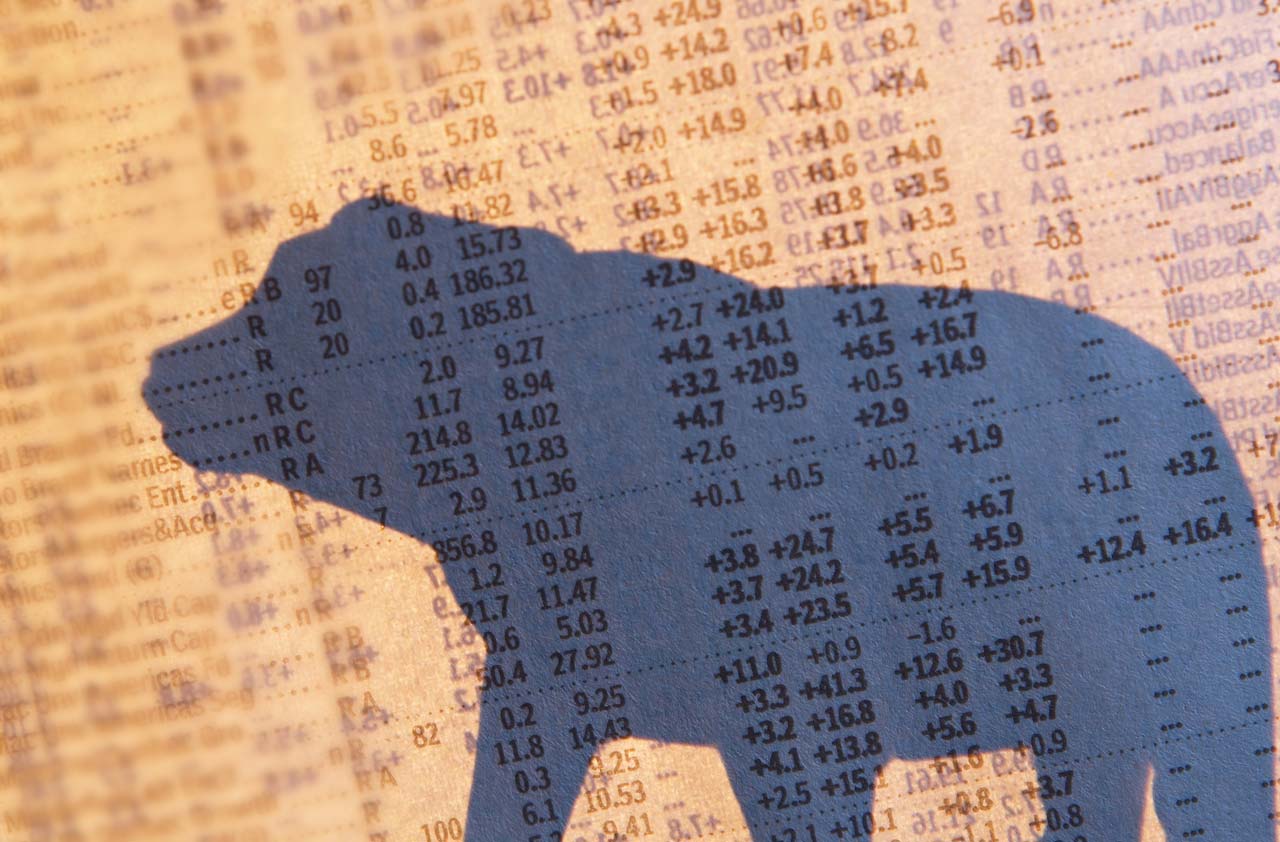Will the Fed Buy Trillions in Treasuries?
Monetary policymakers are squaring off about what, if anything, to do to give the floundering economic recovery a shot in the arm.

Profit and prosper with the best of Kiplinger's advice on investing, taxes, retirement, personal finance and much more. Delivered daily. Enter your email in the box and click Sign Me Up.
You are now subscribed
Your newsletter sign-up was successful
Want to add more newsletters?

Delivered daily
Kiplinger Today
Profit and prosper with the best of Kiplinger's advice on investing, taxes, retirement, personal finance and much more delivered daily. Smart money moves start here.

Sent five days a week
Kiplinger A Step Ahead
Get practical help to make better financial decisions in your everyday life, from spending to savings on top deals.

Delivered daily
Kiplinger Closing Bell
Get today's biggest financial and investing headlines delivered to your inbox every day the U.S. stock market is open.

Sent twice a week
Kiplinger Adviser Intel
Financial pros across the country share best practices and fresh tactics to preserve and grow your wealth.

Delivered weekly
Kiplinger Tax Tips
Trim your federal and state tax bills with practical tax-planning and tax-cutting strategies.

Sent twice a week
Kiplinger Retirement Tips
Your twice-a-week guide to planning and enjoying a financially secure and richly rewarding retirement

Sent bimonthly.
Kiplinger Adviser Angle
Insights for advisers, wealth managers and other financial professionals.

Sent twice a week
Kiplinger Investing Weekly
Your twice-a-week roundup of promising stocks, funds, companies and industries you should consider, ones you should avoid, and why.

Sent weekly for six weeks
Kiplinger Invest for Retirement
Your step-by-step six-part series on how to invest for retirement, from devising a successful strategy to exactly which investments to choose.
Will a further effort to lower long-term interest rates help or hurt the economy? With the economic recovery sputtering, that’s the key issue in a fierce policy battle going on behind the closed doors of the Federal Reserve. The Fed’s benchmark short-term rate is already near zero and has been since December 2008.
Fed Chairman Ben Bernanke and his allies say cutting long-term rates will help increase consumer spending, business investment and job growth. So Team Bernanke is leading a push for the Fed to buy long-term Treasuries—a lot of them, up to $1 trillion worth. The theory is that such heavy buying will push bond rates lower while boosting reserves that banks hold in cash. The aim is for banks to get fed up with the paltry returns they’re getting and go after higher rates by making loans to businesses that want to expand and households that want to buy a house or refinance.
Opponents argue that large Treasury purchases won’t work and are dangerous to boot. Unusually outspoken for members of the Fed, this group is arguing in speeches and comments that previous central bank purchases of $1.7 trillion in Treasuries and mortgage-backed bonds haven’t done much to spark economic growth. They point out that there’s already plenty of cheap credit around, and adding more will only spark inflation down the road.
From just $107.88 $24.99 for Kiplinger Personal Finance
Become a smarter, better informed investor. Subscribe from just $107.88 $24.99, plus get up to 4 Special Issues

Sign up for Kiplinger’s Free Newsletters
Profit and prosper with the best of expert advice on investing, taxes, retirement, personal finance and more - straight to your e-mail.
Profit and prosper with the best of expert advice - straight to your e-mail.
While critics think Bernanke is jumping the gun, the chairman doesn’t want to take the chance that he moves too slowly. The shadow of another Great Depression hangs over his thoughts. He has the votes to carry the day when the rate-setting Federal Open Market Committee next meets, Nov. 2-3. But, in a nod to Bernanke’s critics, the Fed is likely to approach the purchases in a measured way.
Odds are it will announce a modest purchase of $100 billion or so a month, with larger Treasury purchases if needed to lower unemployment. Why go slow? Launching a big buy could spook traders. If they decide to shun bonds, interest rates won’t fall and that would defeat the Fed’s efforts. Also, a large purchase could scare the public and cause a steep decline in stocks—also contrary to the Fed’s goals.
Ironically, the bond market may have already anticipated and reacted to the Fed’s plans. The yield on 10-year Treasury notes has fallen a quarter of one percentage point in the month since word of Bernanke’s thinking seeped out. That means if the Fed doesn’t follow through with this course, long-term interest rates are likely to creep higher.
Look to four markets for an early indication of whether the program will succeed, once the Fed announces its plan. Here’s what to watch for:
• A dip in long-term Treasury yields from their current rate of about 2.5%
• A stock market increase
• A narrowing of the spread between Treasuries and corporate bonds
• And a modest decline in the value of the dollar.
Each would boost the confidence of consumers and businesses, lead to more spending and ultimately, the creation of more jobs.
Profit and prosper with the best of Kiplinger's advice on investing, taxes, retirement, personal finance and much more. Delivered daily. Enter your email in the box and click Sign Me Up.

-
 How Much It Costs to Host a Super Bowl Party in 2026
How Much It Costs to Host a Super Bowl Party in 2026Hosting a Super Bowl party in 2026 could cost you. Here's a breakdown of food, drink and entertainment costs — plus ways to save.
-
 3 Reasons to Use a 5-Year CD As You Approach Retirement
3 Reasons to Use a 5-Year CD As You Approach RetirementA five-year CD can help you reach other milestones as you approach retirement.
-
 Your Adult Kids Are Doing Fine. Is It Time To Spend Some of Their Inheritance?
Your Adult Kids Are Doing Fine. Is It Time To Spend Some of Their Inheritance?If your kids are successful, do they need an inheritance? Ask yourself these four questions before passing down another dollar.
-
 Federal Debt: A Heavy Load
Federal Debt: A Heavy LoadEconomic Forecasts The debt continues to grow, but record-low interest rates could ease the long-term damage.
-
 Is a Recession Imminent?
Is a Recession Imminent?Economic Forecasts Shoppers will have to carry the load for now because weak business investment shows no sign of perking up anytime soon. Odds are, they’ll be able to.
-
 3 Factors That Could Drive the Next Recession
3 Factors That Could Drive the Next RecessionEconomic Forecasts The economy is humming along nicely, but how long can the good times continue?
-
 Savers Feel the Pain of Low Interest Rates
Savers Feel the Pain of Low Interest RatesMaking Your Money Last The Fed's low-rate policy has cost U.S. savers $470 billion.
-
 Is the Stock Market Signaling a Recession Ahead?
Is the Stock Market Signaling a Recession Ahead?Economic Forecasts Sinking stocks don't necessarily presage an economic downturn.
-
 U.S. Manufacturers on a Roll
U.S. Manufacturers on a RollEconomic Forecasts Cheap energy and an improving economy will keep manufacturing growing at a better-than-average rate.
-
Next Rise in Interest Rates Will Come in 2015
business Even when rates finally do head up, they won't zoom out of control. A progressive series of stair steps is more like it.
-
Fracking Boom Spells New Tech Investments
Economic Forecasts Solutions to energy and safety concerns will be in hot demand.